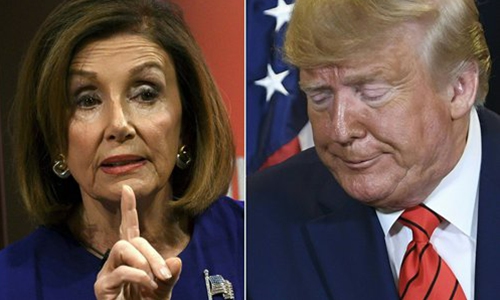Who Wants a War with Iran?
Few rules are more certain in Middle Eastern politics than the question of who benefits from an attack. With the assassination of Gen. Qassem Soleimani, an unscrupulous strategist who brought together otherwise opposing armies, there are various regimes and leaders of different societies who, for different reasons, are thankful for his death.
Donald Trump is the first opportunist in this escalation of the never-ending conflict with Iran, as he is currently on the brink of impeachment* and beginning his reelection year. The attack against Soleimani, a radical response to the pro-Iranian militia’s siege of the U.S. Embassy in Baghdad a few days prior, has changed the focus of American opinion about Trump, a president who has been viewed as reluctant to enter the international arena.
The presumptive Saudi Arabian heir, Crown Prince Mohammed bin Salman, for whom 2019 was his worst year, is also very much aware of this escalation of the conflict between his great ally (the U.S.) and his worst enemy (Iran). Two of his additional conflicts with Iran – the Yemen war and the boycott of Qatar – have lately become complicated, and domestically, his economic and pseudo-moral openness has failed to hide the brutal political repression within his country. Now, he is able to assert himself far better both domestically and internationally as the great ally of the United States.
Without a doubt, the assassination of Soleimani is a declaration of war that Iran cannot avoid. Its policy of raising or lowering the voltage of confrontation with the U.S. has finally been jump-started by the Trump administration, with Trump who was alive during the colossal humiliation of the U.S. Embassy hostage-taking in Tehran, the Iranian capital in 1979. Iranian leaders, with Ali Khamenei at the head of the increasingly internally challenged regime, will have a hard time finding a solution that will not ignite a new conflict with Iraq. However, winning this new subsidiary war will be much more complicated than doing so in Syria or Yemen.
Despite Khamenei’s provocative proclamations and the demand for revenge during Iran's period of national mourning, Iran will have to weigh its options. And it is not a minor matter that, although in Iraq Shiite leaders are preparing to close ranks and regroup their militias, along with Soleimani, the murder of Abu Mahdi al Mohandis, who was his right-hand man in Iraq, has left a void in leadership that will not be easy to fill, especially if war is to be fought on Iraqi soil. Muqtada al-Sadr, the astute leader of the Sadrist Movement and the Mahdi army, is already offering himself as a successor and has harangued his supporters in Parliament and on the street to shine a spotlight on U.S. troops. However, it remains to be seen if this situation resonates as it did during the war against U.S. military occupation. This is doubtful because the younger generations of Iraqis have powerfully mobilized en masse in recent months calling for the end of the sectarian regime, the only regime that they have ever known.
A war with Iran also does not hurt Recep Tayyip Erdoğan, the current president of Turkey, or Bashar Assad, the president of Syria. The war gives the Turkish president the opportunity to maintain control of popular legitimacy among Sunnis. For the Assad, although Soleimani and his army were decisive in the massacre of the revolution, post-war reorganization will be easier for him, while Iran deals with other conflicts.
And what about Israeli Prime Minister Benjamin Netanyahu, who is a great friend of the Trump family? His longing for war with Iran (which is shared across Israel, where for many, their primary enemy is Iran, not Palestine) will help him in the lead-up to a new election while he faces damaging allegations of corruption. Israeli army generals, with close connections to the Kurdish peshmerga, are not opposed to this distraction after the recent International Criminal Court decision to initiate an investigation for war crimes in the occupied Palestinian territories.
Once again, there is the question of Russia. The tension in the region does not fit in with Vladimir Putin’s belief that the war in Syria is about to conveniently settle down. Perhaps Putin is the only one able to calm heightened emotions in the Middle East. In any case, the big losers in the situation are the Iraqis, who, after several months of popular revolt against an intolerant and corrupt regime run by Iran and the United States, continue to witness the kidnapping of their country and its future.
*Editor’s note: Donald Trump was impeached on Dec. 18, 2019 and was awaiting trial in the Senate at the time this article was written.

